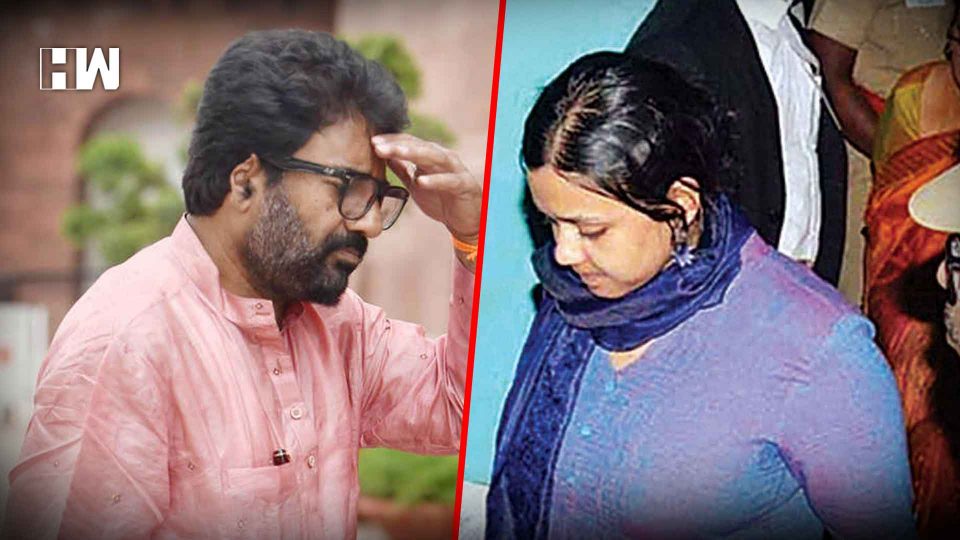Can our politicians get away with crimes, which if committed by the common people can lead to grave punishment in the rule of law?
On Monday, a Tamil Nadu based research scholar Lois Sophia was arrested at the Tuticorin airport. Her crime? Shouting “down with Modi, BJP-RSS fascist government” to BJP’s Tamil Nadu President Tamilisai Soundararajan on a flight. Sofia was arrested after the plane landed in Tuticorin and Ms. Soundararajan filed a complaint with the airport police. Sofia has been charged with creating “public nuisance” and “attempt to cause alarm”. Though she was released on bail the very next day, she had to spend a night in jail.

This incident takes me back to the not-so-distant memory of a similar incident from 2017. In March last year, Shiv Sena MP Ravindra Gaikwad assaulted an Air India official inside the flight after his plane landed the Delhi airport. He not only heckled the Air India official but also hit him with his chappal and without a bit of remorse even boasted about it on the TV channels. However, within a week the travel ban imposed on him after the incident was revoked.
When both the incidents are compared to the same parameter, the irony glares us straight in the face. It poses some important questions in front of us- why should Sophia be put in jail while politicians like Gaikwad having committed crime of a greater degree are let off? Is degree or severity of an offense differs for politicians and for citizens? Was Sophia shouting “Fascist BJP” was an offense more serious than that of Gaikwad hitting the Airline staffer? Are there different standards for our politicians? Does being a politician bestow them with privileges that differentiate between them and a common man? Can our politicians get away with crimes, which if committed by the common people can lead to grave punishment in the rule of law? Can our politicians get away with a crime as serious as murder as well?

There is no doubt that India is yet to get rid of the VIP culture, but the question here is, many of our politicians have criminal cases against them, few with serious charges and yet they are able to go scot-free. There is a number of examples. BJP’s Yogi Adityanath, known for his hate speeches, has a plethora of cases against him. Some of the most serious ones are – attempt to murder, criminal intimidation, endangering life and rioting- armed with deadly weapon. Now he rules over India’s biggest state. However, as soon as he assumed the power, his government passed a law that withdrew cases against him. But this is not the sole example.
The same is the case with the president of India’s national party BJP. Amit Shah-the president of BJP and now a Rajya Sabha member has a slew of cases against him including murder charges. Several others including Bihar Chief Minister Nitish Kumar, Former Karnataka Chief Minister BS Yeddyurappa, RJD chief Lalu Prasad Yadav, Former Congress Minister Suresh Kalmadi, so on and so forth. The list is too long. In March this year, the Modi government informed the Supreme Court that 1,765 MPs and MLAs, or 36% of parliamentarians and state assembly members are facing criminal trial in as many as 3045 cases. However, the number of cases is expected to be much bigger than cited by the government. According to the Association of Democratic reform, there are 116 MPs having declared serious cases against them which amounts to 22%.

However, despite the cases against them, only a few of them get convicted under the serious charges. That too after years and years of lengthy court proceedings. Many are acquitted in absence of any strong evidence and they even get accepted in mainstream politics while the dark history of a criminal record is buried deep in the grave of past.
Can the similar happen with a common citizen? The answer is definitely no. The common citizen once stamped with the criminal cases has to carry the burden for most of his life whereas our politician’s life remains majorly unaffected, except the stained image. Does that hurt them politically? Not in its entirety. If all the citizens in India are equal in the eyes of law, then why even on the basic parameters it effects differ for a citizen and a politician?
The question needs to be answered for us to determine whether Sophia was guiltier than Gaikwad or vice versa.
As an independent media platform, we do not take advertisements from governments and corporate houses. It is you, our readers, who have supported us on our journey to do honest and unbiased journalism. Please contribute, so that we can continue to do the same in future.

